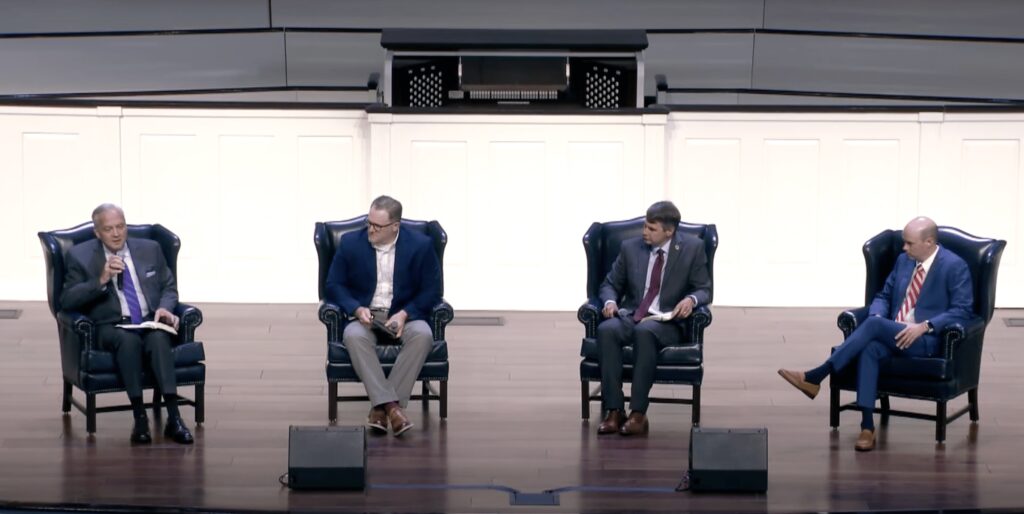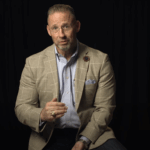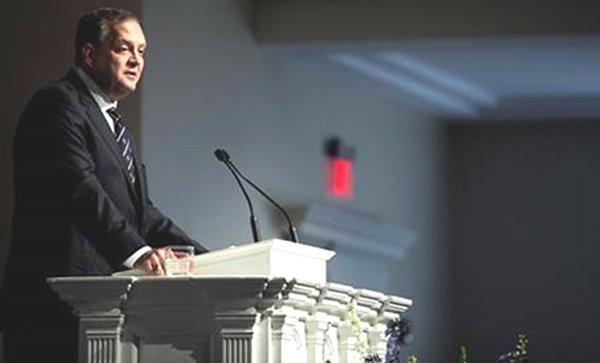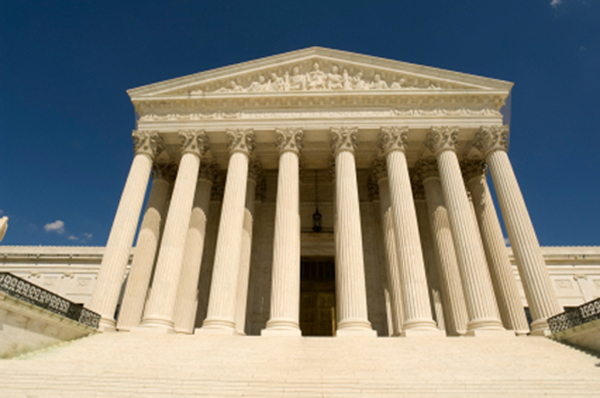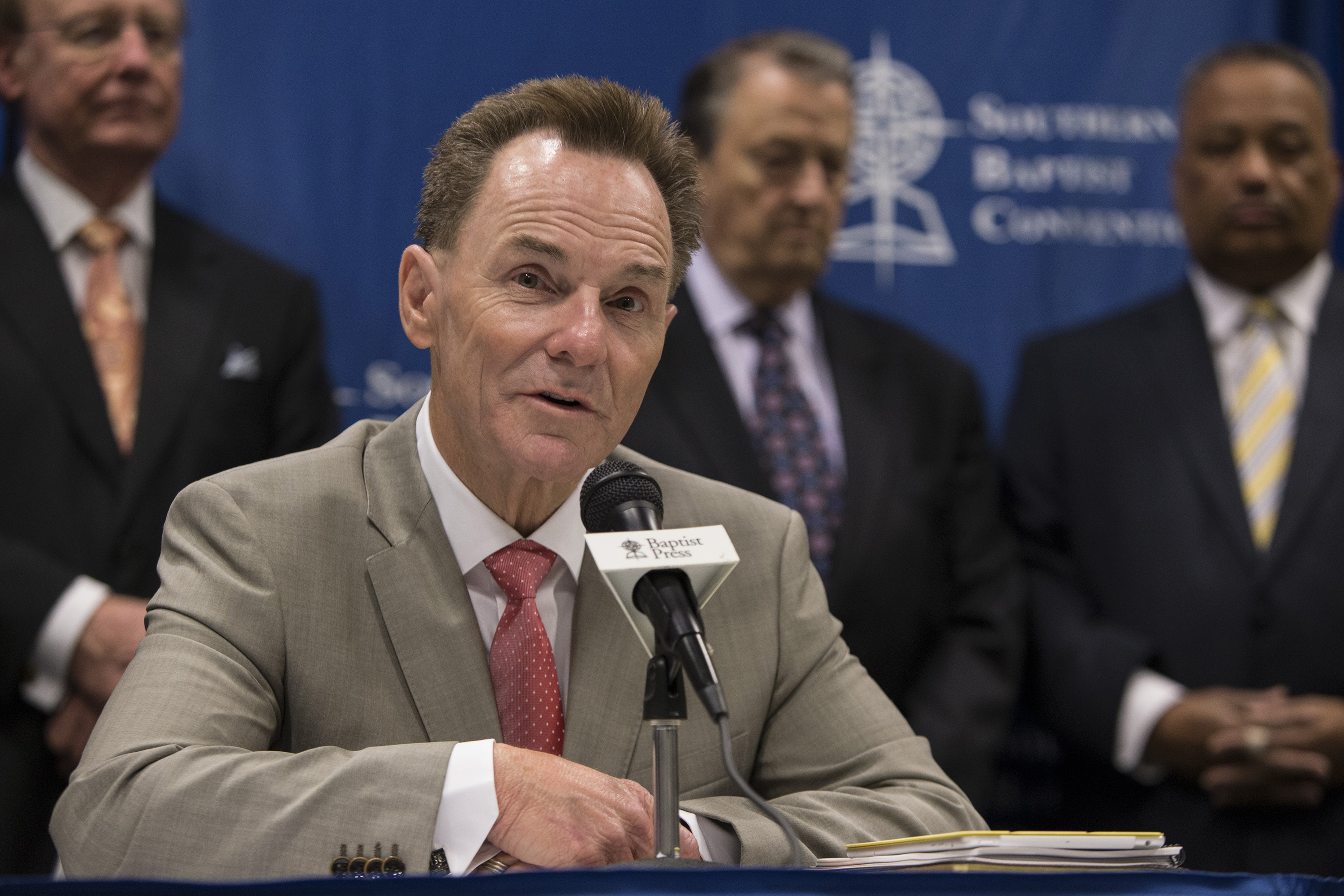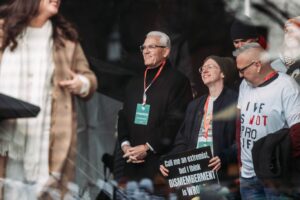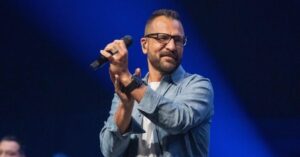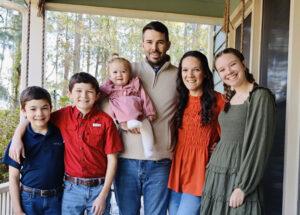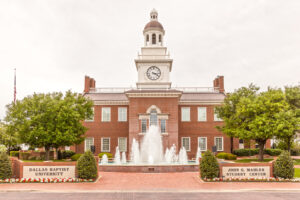
LOUISVILLE, Ky. (BP) – The day after conservative mobilizer Charlie Kirk was killed by a gunman in Utah, leaders at Southern Baptist Theological Seminary jettisoned their previously scheduled chapel service and, instead, spent the hour talking about how to deal with tragedy as Christians.
“There’s a sobriety to our conversation today,” SBTS President Albert Mohler said, “but let’s be very thankful we have this conversation in full confidence in Christ.”
“To put it bluntly,” Mohler said, “I think Charlie Kirk had a lot of influence … on the students of Boyce College, in particular the young men of the college,” he said.
As the panel discussion began, Mohler read Romans 12, a passage calling Christians to live peaceably with all and never repay evil with evil.
He was joined by Andrew Walker, Denny Burk and Dustin Bruce.
Mohler asked Walker about his first thought when he learned of the emotional news Sept. 10.
“Gratuitous violence is always a shock to the conscience,” Walker said.
Reflecting on seeing the graphic video depicting the moment Kirk was shot and remembering he was a husband and father, Walker said, “We can’t use language other than tragedy and grief in these types of situations.”
He compared Kirk to William F. Buckley whom he labeled the “founder of the modern conservative movement.”
Mohler called Kirk “far more effective” than many others in taking on LGBTQ activism and helping younger people understand what is at stake.
“I would argue that there’s no one who has been as explicit about their Christian faith as someone like Charlie Kirk,” Walker said, “And especially bringing that down to a youth culture and, happily, seeing great progress and transformation in his own understanding of how he integrates his faith in his politics.”
Burk said he had just finished teaching a hermeneutics class when a student told him Kirk had been shot. He reflected on how Kirk’s bold faith had inspired him.
“To me, what stood out about him was when he would share about Christ,” Burk said. “He would talk to lost people. He would talk to people who did not know Christ, who were leftists, who were there opposing him on all kinds of ideological grounds, and he would just talk to them about Jesus.”
Bruce said he first learned of the shooting by seeing the graphic video.
“I watched that and then immediately thought, ‘Oh, should, I have watched that?’”
Bruce said he had talked to many students who had seen the video. Some watched it knowingly and others were unaware of what was going to happen as the video played.
“We see many more things than we used to,” Bruce said, “and I have concerns over what that does to us.”
Mohler pointed out that Kirk’s presence grew through video content shared on social media, which contributes to why so many people were affected by his debating and his sudden death.
“Given the fact that Charlie had such influence, and given the fact that he has the power of creating and communicating and immediacy, a lot of people felt like they had a relationship with him,” he said.
That feeling of friendship has driven many to anger over the killing of Charlie Kirk. What should believers do when they witness such a grave injustice?
Mohler looks to Scripture.
“It is the emperor who bears the sword and not in vain,” he said, pointing to Romans 13.
“It’s very tempting in a moment of urgency and anger to even emotionally join a mob,” he said, adding that he doesn’t believe that will accomplish what is desired.
“The ultimate satisfaction of full justice can’t be delivered by a mob. It also can’t be delivered by the rule of law. It can be delivered to the fullest sense possible on earth by the rule of law. But the final judgment on these things is going to be made by the one truly perfect judge,” Mohler said.
Pointing to Christ, he reminded the audience, “We serve a Savior that says love your enemies. We serve a Savior who when reviled did not revile in return.”
Labeling it a “particular calling”, Burk said as Christians “we are bearing witness to another kingdom, and that kingdom is invading right here where we’re living.”
“And we need to be able to bear witness to that. We love enemies that hold ideologies we hate … and we want to see them saved and we want to see them converted. We want to see them brought into the kingdom,” he said.
